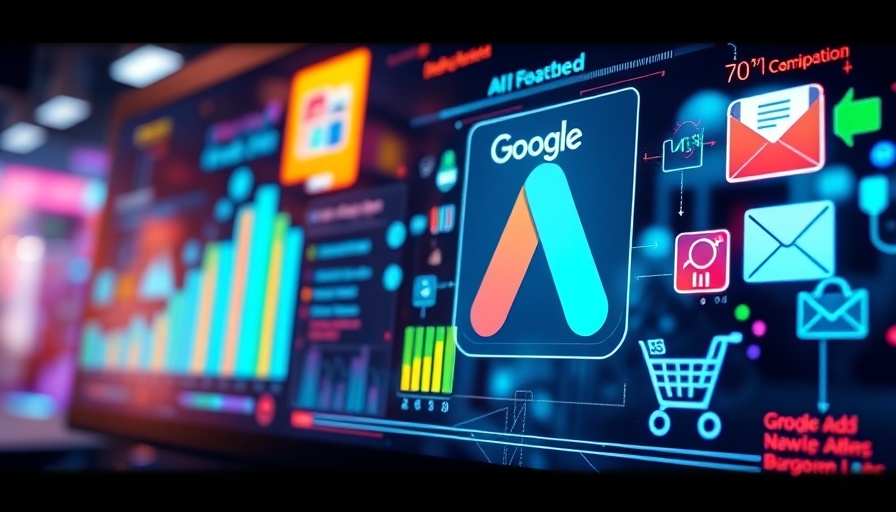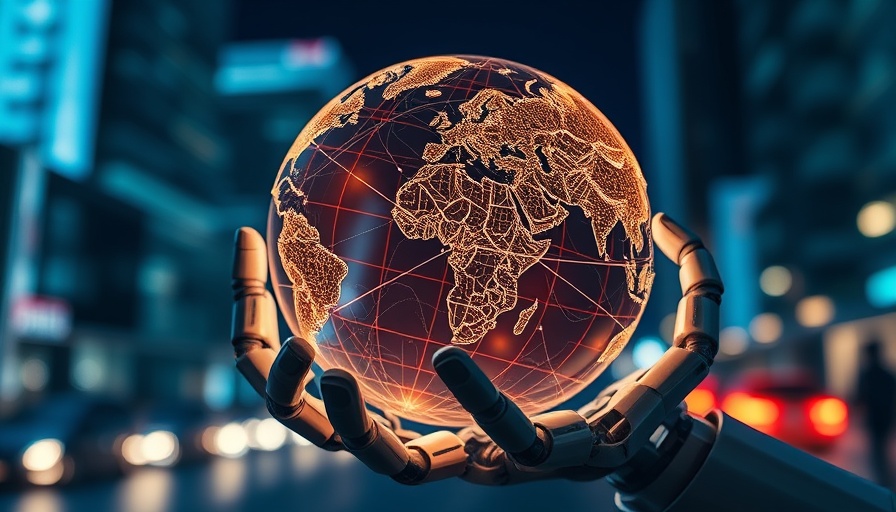
What Is the Real Impact of AI on Our Workforce?
As we dive deeper into the implications of AI on our daily work lives, we are met with a dual narrative—one portraying AI as a disruptor of employment and another highlighting its potential as a tool for empowerment. AI is not merely a coding achievement; it's reshaping industries and redefining productivity across the globe. Understanding how it intersects with our careers can help clarify its benefits, especially for the younger generation gearing up for the job market.
How AI is Leveling the Playing Field
AI tools, such as ChatGPT, are breaking barriers for individuals and small businesses. For example, rural entrepreneurs can leverage AI for marketing insights that were previously inaccessible, allowing them to compete on a more even playing field with larger corporations. It fosters innovative thinking by providing users with resources to generate new ideas—be it a student queries about complex theories or a professional needing to create effective presentations. The essence of AI isn't just in replacing tasks, but in enhancing our capabilities.
The Importance of Lifelong Learning in AI's Era
The introduction of AI into various sectors necessitates the re-evaluation of our skills, especially critical thinking and adaptability. Industries are recognizing that a static skill set is no longer sufficient. Educational models are transforming, with AI providing tailored learning experiences. These models allow teachers to address diverse learner needs, boosting engagement and understanding among students. As AI evolves, so must our approach to education and skill enhancement, urging individuals to adopt a mindset of continuous learning.
Breaking Down Access: AI in Education
Students, regardless of their backgrounds, can benefit immensely from AI's personalized tutoring capabilities. For example, platforms using AI technology are bridging gaps in access to quality education by providing personalized learning paths. Beyond just tutoring, these systems also offer valuable feedback, helping students grasp complex concepts and apply them effectively. In a world where technology influences the learning process, the future indeed seems promising for equitable access to education.
Preserving Equity in AI Adoption
While discussing the strides AI is making for productivity, it is equally vital to consider its implications for equity. OpenAI's collaborations with policymakers aim to ensure that AI fosters inclusion rather than exclusion. It is crucial that as we embrace automation, we also advocate for fair access that benefits everyone, particularly marginalized communities. The responsibility lies not only in developing these tools but also in ensuring they are accessible to those who need them most.
Actionable Steps for Embracing AI
For individuals and organizations looking to harness the benefits of AI while navigating its evolving landscape, here are some practical insights: 1. **Engage in Lifelong Learning**: Regularly update your skills and knowledge to keep pace with technological changes. 2. **Explore AI Tools**: Utilize available resources such as ChatGPT for daily tasks, boosting efficiency in your workflow. 3. **Advocate for Equity**: Support initiatives that aim to make AI technology available to all sectors of society, ensuring no one is left behind.
Your Future with AI
As AI continues to transform our work and life, understanding its nuances is paramount. This technology is designed to empower and enhance our daily routines, potentially leveling the playing field. While challenges remain, proactive engagement through education and ethical practices will dictate how these advancements shape our economic future. If you want to explore AI tools further, check out Prompt2Human for navigating AI potential.
 Add Row
Add Row  Add
Add 




Write A Comment